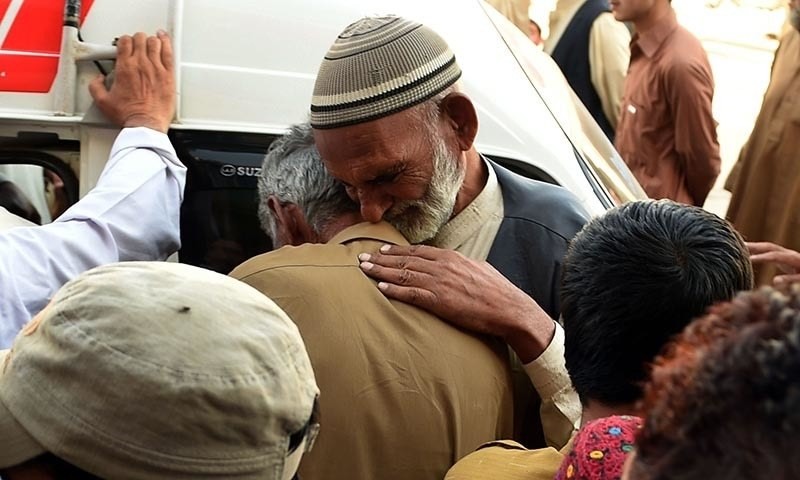
Was Mastung attack a conspiracy to incite Pashtun-Baloch conflict, sabotage CPEC or a tactical move by the Baloch insurgents

Recent Mastung carnage has started a new debate about the ongoing insurgency in Balochistan and its socio-political impact on the region.
At least 22 people were killed and several injured on the night of May 29 when unknown militants in uniforms of paramilitary forces, stopped two buses and killed passengers after checking their identity cards. Buses were coming from Pashtun-dominated towns of the province -- Chaman and Pishin, carrying passengers to Karachi. All of those killed were ethnic Pashtuns travelling to Karachi for business or personal visits.
Before this attack, the militants belonging to banned sectarian groups used to stop the buses carrying Shia pilgrims to Taftan, Iran’s bordering town in Mastung district, lined up the passengers, checked their identity cards, and then killed only Shia pilgrims.
It was cheapest for Shia pilgrims to travel by road from Balochistan to Iran and Iraq to perform their religious rites. The rise in the attacks, especially in Mastung, has stopped them from travelling by road. The federal government, after imposing ban on road travel, has been working on launching of a ferry service for pilgrims from Karachi to Iran.
Besides, Baloch insurgent groups had claimed credit for a number of killings of Punjabi settlers and even Pashtun workers in the province. Political analysts say that attacks on Pashtuns are not a new phenomenon but killing them after stopping buses and checking their identities is a new and dangerous trend.
The Mastung massacre is mainly regarded as the action of ‘anti-Pakistan’ forces focused on sabotaging China-Pakistan Economic Corridor (CPEC), a multi-billion dollars project of Chinese investment. The killings in Mastung came just a day after a conference convened by Prime Minister Nawaz Sharif on the CPEC issue. Nazir Jan, a central leader of Pakhtunkhwa Milli Awami Party (PkMAP), said the attack was aimed to disrupt the viability of western route of the CPEC. "All political parties reached a consensus with the federal government, announcing priority development of the western route, passing through Balochsitan and Khyber Pakhtunkhwa provinces."
Jan Achakzai, a leader of the Jamiat-e-Ulema-e-Islam-Fazl (JUI-F) holds the same view. "Balochistan boiling was their strategy to paint Pakistan as a weak, unstable and unsafe state," he tell TNS, adding that the Mastung attack was rival intelligence agencies’ attempt aimed at scaring China away.
The attack was a concern for premiere Sharif because it raises further questions about the feasibility of a CPEC route Pakistan wants to build with billions of dollars of Chinese investment. It prompted Sharif to convene another all parties’ conference in Quetta on June 2. "Country’s enemies were trying to ‘divide the nation’ in their effort to disrupt the planned Pakistan-China Economic Corridor mega project," he spoke at the APC.
A large section of analysts and political leaders are of the view that Mastung attack was a conspiracy to incite Pashtun-Baloch conflict in the province and it has brought leaders from both communities together to stand united against such conspiracies.
The Baloch and Pashtun are the two major ethnic groups in Balochistan. There are several differences between the political parties representing both communities like on population figures, allocation of jobs and development funds. These issues have intensified after PkMAP came in power in the province. "These issues were political. Clashes have been restricted between student groups of the two communities at university campuses in the province," says a teacher at Balochistan University, adding that recent Mastung killing was a conspiracy to incite violent clashes between two communities but political parties thwarted such ill-plans.
Agha Hasan Baloch, central secretary information of the Balochistan National Party (BNP), condemning the Mastung carnage, termed it a conspiracy to incite Pahstun-Baloch conflict in the province. The two have been living peacefully together since centuries. "First, there was conspiracy to pit Baloch against Punjabi settlers and Hazara community in the province, and now against Pashtuns, but political parties and civil society organisations have again foiled such conspiracies by showing political maturity," Baloch tell TNS.
Analysts believe that the differences between the Pashtun and the Baloch are rooted in history. In British Balochistan, comprising Pahstun-populated areas, relatively modern infra-structure was built for strategic reasons while Balochistan under Khan of Kalat remained a backward and neglected area.
From the platform of National Awami Party (NAP) Pashtuns and Baloch have a distinct history of joint struggle. Veteran nationalist leaders like late Ghous Bakhsh Bizenjo, late Sardar Khair Bakhsh Marri, Sardar Ataullah Mengal and late Khan Abdul Samad Khan Achakzai struggled and spent jail periods together. However, children of these leaders could not continue with the excellent tradition of joint struggle set by their elders. When in 1970s, Balochistan became a full-fledged province, the difference between both the communities widened. Also, government ban on the NAP and the armed resistance by Baloch groups accelerated the process of alienation between the two communities. The Pashtun-Baloch conflict, however, remained a hot issue throughout the 1980s and 1990s.
The Mastung attack was claimed by United Baloch Army (UBA)’s spokesperson Moreed Baloch, calling it a reaction to the ongoing operation of security forces against Baloch separatists. However, Baloch Republican Party (led by Brahmdagh Bugti), Baloch Liberation Army, led by Hyrbyair Marri and Mehran Marri, who leads the UBA, have condemned the attack on the Pashtun fellows.
However, law enforcement agencies believe that the UBA is behind the attack and have registered an FIR against the group commanders Zamuran Marri alias Miran Marri and 11 others.
"It may be a tactical move by the Baloch insurgents to pressurise the security forces who recently intensified operation against them in the region and want to show that Balochistan is not feasible for the CPEC project," says a senior police official in Quetta. "Now Baloch separatist leaders disassociate themselves from the attack because they know the case could spoil their asylum cases abroad."